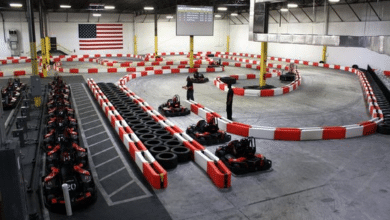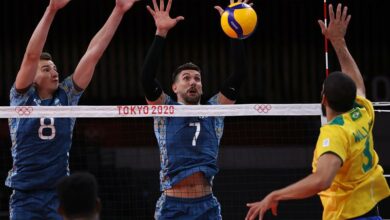Time cave: 500 days in total isolation

By Roberto Ruiz Oliva
Granada, Spain, April 12 (EFE).- Beatriz Flamini, an elite athlete, mountaineer and climber, is on the cusp of achieving a world record. This week, she will complete a 500-day stint underground in a cave, alone, in the dark, with no sense of time or contact with the outside world.
Flamini, who will be leaving the 70-meter-deep cave on Friday, has no idea what has happened on the surface in the almost 18 months she has been in total isolation.
Flamini, who is passionate about solo climbing expeditions and an expert in self-sufficiency, contacted production company Dokumalia two years ago to pitch her idea of living alone in a cave with no external contact for 500 days.
“It was a personal challenge to overcome, like many others that she had done before,” Elena Mera, a spokesperson for the Timecave project, tells Efe.
“In this case, it also lent itself to all the studies that others wanted to conduct, with many scientists signing up. She also suggested recording the entire process into a documentary series,” Mera adds.
PERPETUAL DARKNESS
The adventurer, who experts say is mentally strong and very determined, has had to face her ordeal completely alone, her only piece of equipment being two GoPro cameras she brought with her to document her experience.
Dokumalia has followed developments closely over the last year and five months, including Flamini’s meal plans, her exercise routines, the good days – and the bad ones – and all manner of problems and challenges that have arisen, as well as changes in the athlete’s body and state of mind.
One of the things Flamini has reported is feeling like she has entered a perpetual time loop that stopped at 4 AM.
The groundbreaking experiment has seen Flamini go through extremes of terror and euphoria, existential explorations of the meaning of life, huge mood swings and hallucinations, as well as struggles with issues with memory and concentration.
TRACKING THE EXPERIMENT
Since she went underground, a group of psychologists, researchers, speleologists and physical trainers have remained connected and up to date on how the athlete was fairing, without ever having any direct contact with her.
Flamini has been dropping off recordings at an exchange point in the cave so that producers could collate the footage of the entire experience, Mera explained.
Julio Santiago, from the Department of Experimental Psychology and Behavioral Physiology of the University of Granada, has been observing and analyzing how social isolation and extreme temporary disorientation have affected her perception of time.
Research groups in clinical and experimental neuropsychology at the University of Almería have assessed the possible neuropsychological and cognitive changes that the experiment could have on Flamini due to the extreme loneliness, absence of light and cognitive and social isolation the athlete has endured.
Before entering the cave, an in-depth assessment of Flamini’s cerebral cortex and cognitive functions was conducted through neuropsychological, clinical and experimental tests. Her reasoning capacity and semantic memory were also tested.
The Madrid-based Kronohealth sleep health consultancy also studied Flamini’s circadian rhythms and sleep while underground.





